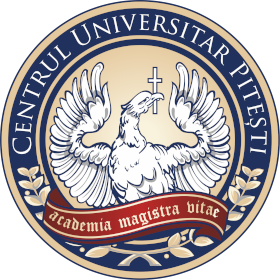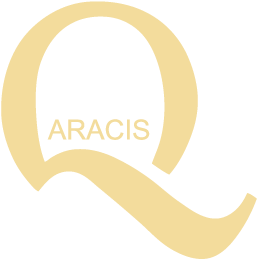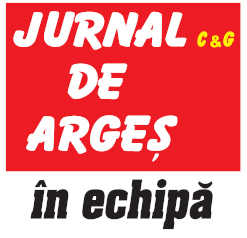- Scientific Research and Digitalization
- CRC&D-Auto
- Proiecte de cercetare in derulare
- TFI PMAIAA
- Partners of the consortium
The complex project "SMART MANUFACTURING TECHNOLOGIES FOR ADVANCED PRODUCTION OF PARTS FROM AUTOMOTIVE AND AERONAUTICS INDUSTRIES (TFI PMAIAA)" is realized by a Research – Development - Innovation consortium consisting of five universities: "Vasile Alecsandri" University of Bacău, University of Piteşti, "Gheorghe Asachi" Technical University of Iași, "Lucian Blaga" University of Sibiu and “Dunărea de Jos” University of Galați. The complex project is coordinated by "Vasile Alecsandri" University of Bacău. The complex project includes five component projects, which are coordinated by a university from the RDI consortium, as follows.
1. "Vasile Alecsandri" University of Bacău: PROJECT COMPLEX COORDINATOR, Component Project 5 Responsible – "Efficient metal removal processes for advanced materials used in automotive and aerospace industries".
The project aims to an efficient of the water jet processing technologies or bootlast moulding and applying them to the processing of parts (armor, body components or structure, etc.) realized by advanced materials (high - strength steels) used in the automotive industry or aeronautics. To this end, the theoretical and experimental methods and techniques will be used which lead to the efficiency of the respective processing technologies applied to these types of materials. The transfer of the obtained results within the researches carried out will lead to the increase of the transfer capacities of the research results to the companies from the automotive and aeronautical industry. Methods, techniques and modern tools for the research of processing technologies of advanced materials aim, among others: eliminating sources of internal stress, applying the methods that allow optimal process parameters, reducing material consumption, etc.
2. University of Piteşti: Component Project 1 Responsible - "Improving production flows in automotive and aerospace industries by integrating modern methods and techniques for production management"
The project aims to develop a methodology for improving production flows by integrating modern methods, techniques and tools for production management and laboratory development of an experimental demonstrator for use starting from a conceptual model level TRL2. Within the project, research platforms will be developed to experiment with the implementation of the newest methods of improving production flows. Research platforms will be carried out for each research direction: layout design, modeling and simulation of flows and Lean Manufacturing and will be integrated into an experimental laboratory (TRL4). The platforms will contain specific elements to the researched field and applied methods, such as: physical equipment for configuration and supply of workstations, support elements for simulation of the location production means, support elements for production flows simulation, Poka Yoke systems, DOJO systems, elements support for team simulation, support elements for communication simulating within a plant. Along with the physical supports, the platforms will also contain specific computer supports: layout design, discrete event simulation of flows etc.
3. "Gheorghe Asachi" Technical University of Iaşi: Component Project 2 Responsible - "Smart forming of composite materials for automotive body parts"
The main objective of the project is to create new products from biodegradable materials ("liquid wood" stiffened with different fibers) in order to replace plastic parts available on the market for the automotive and aeronautical industry. Another goal is to set the stages of the stiffening technology and realization of the stiffened yarns from "liquid wood" granules in order to obtain in order to obtain parts with superior properties using 3D printing technology. The main research will be: - the study of the extrusion thread; the sensitivity, torsion, resistance, elongation at break, uniformity, physico-mechanical, thermal and structure properties; - the study on the identification of parts from automotive and aeronautical industry susceptible to be obtained by 3D printing from biodegradable materials; - determining the influences of the 3D printing technology parameters on the properties of the obtained parts;- optimization of the 3D printing technology for the biodegradable materials; - obtaining the parts and the study of the physico-mechanical, thermal and structure properties : impact resistance, breaking, DSC, XRD, SEM etc. Taking into account some previous results of the research team of the "Gheorghe Asachi" Technical University of Iași regarding the obtaining and processing of parts from biodegradable materials ("liquid wood") by injection, we consider that parts can be obtained through 3D printing with appropriate properties in order to replace plastic products. The project is original and innovative in Romania. So far, there are no researches regarding the products production from biodegradable materials ("liquid wood") through 3D printing. The major advantage of the 3D printing technology implementation of biodegradable materials is to protect the environment by removing the plastic waste resulting from the dismantling of the motor vehicles.
4. "Lucian Blaga" University of Sibiu - Component Project 3 Responsible - "Smart manufacturing by incremental sheet forming of automotive parts".
The project aims to facilitate industrial implementation of the incremental deformation process, especially in the automotive industry. For this purpose, will mainly research methods and techniques for improving the dimensional precision and the shape of the worked parts. Also, specific tests will be developed to study the deformability of the materials worked by this process and will be adapt the technological equipment of the CNC milling machine type and serial industrial robot for the studied process.
5. "Lucian Blaga" Dunărea de Jos" University of Galați - Component Project 4 Responsible – "Smart control of manufacturing processes and inspection of the complex parts used in automotive and aerospatial industries"
The automotive and aeronautical industries are going through a period of change due to the widespread adoption of intelligent technologies based on three main components: digitization, numerical simulation and intelligent control. The major objective of the project is to increase the competitiveness of the research by applying the three components mentioned above in the manufacturing of parts, mainly by plastic deformation, considering technologies of interest, the sheet hydroforming and body parts cupping. The specific objectives of the project are: design of new plastic deformation equipment, specific to the above-mentioned technologies, including the automatic, intelligent control of the process; designing some methods for intelligent dimensional control of deformed parts, using the digitization technique, numerical simulation and artificial intelligence; reduce the time of the parts inspection by optimizing the measurement process; the optimal control of the deformation processes through offline and online techniques. These objectives are contained in the three stages of the project with the related actions.
Scientifically, the estimated impact of the project will be to formulate new concepts specific to new intelligent manufacturing and control technologies, by plastic deformation, in particular, which will increase the research capacity of the involved team. Technologically, the major impact will be the development of a new class of technological equipment with superior performance to current manufacturing systems.
PARTENERIAT ÎNTRE UNIVERSITATEA DIN PITEȘTI, S.C. CARIERĂ FEROVIARĂ și S.C. CLUB FEROVIAR

Biblioteca Digitală a Universității din Pitești Bibliografii în format digital – un nou serviciu online oferit utilizatorilor - Ghid de acces -

Informare privind Analiza de piață COM/DG RTD împreuna cu Banca Europeana de Investiții

A început procesul de selecție a grupului țintă (GT3) în cadrul proiectului ”Universitatea 4.0 – universitate deschisă și conectată pentru creșterea rezilienței instituționale”, Cod p













